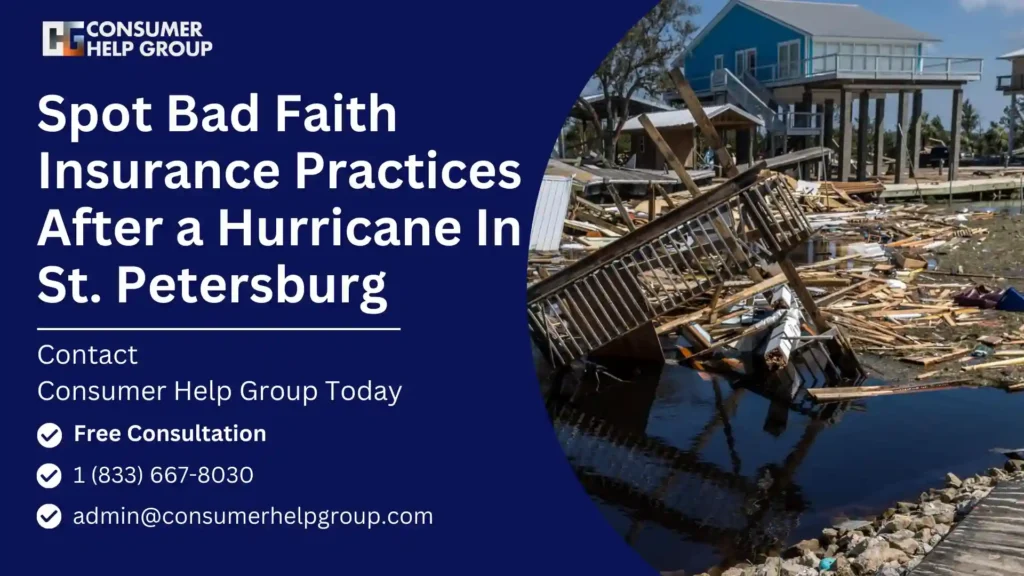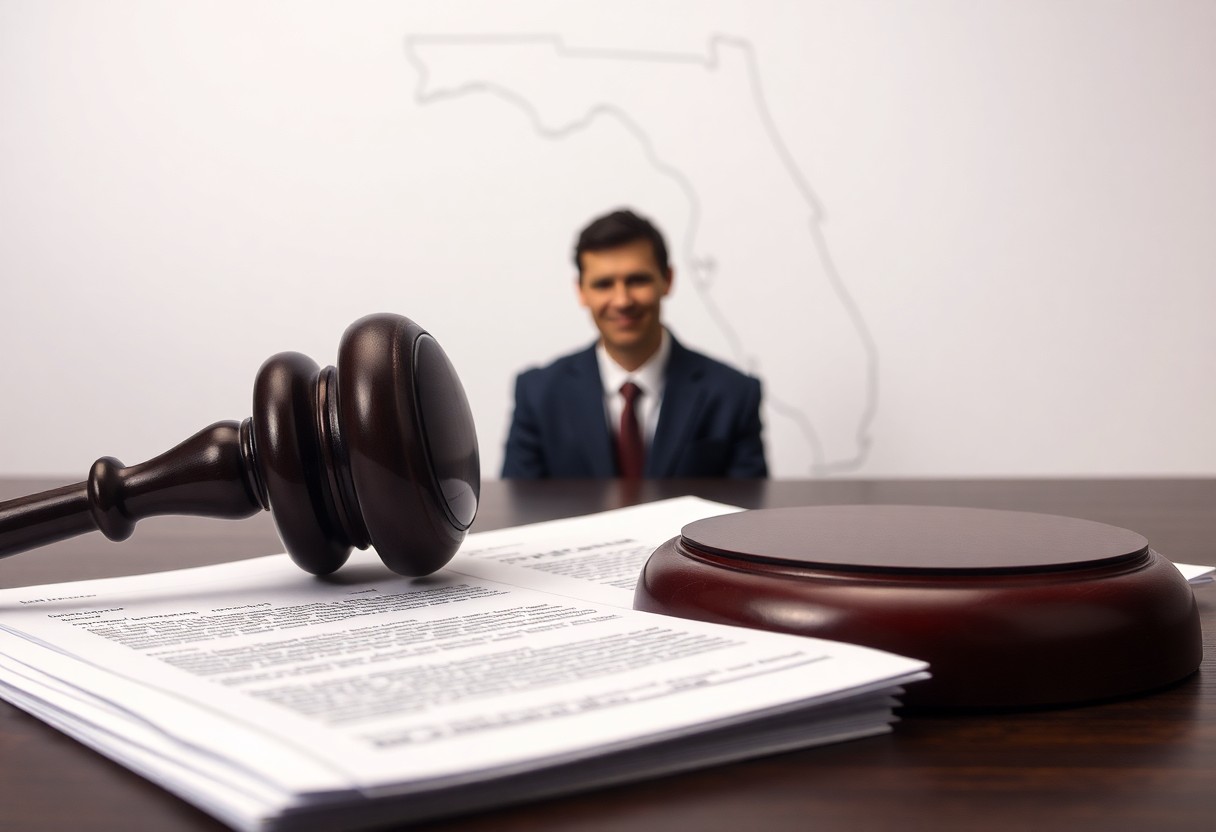Insurance is meant to protect your house, your car, and your business. It also covers medical and health care expenses.
If you file a claim for hurricane damage in St. Petersburg, you expect your insurance company to deal with you fairly. A good faith act is an insurer who does what they said they would do. If the insurance company fails to perform its part of the bargain, they are acting in bad faith.
If you suffer bad faith from the insurance company – perhaps through a denial of a claim for damages that you sustained in a motor vehicle accident or otherwise injury – The Consumer Help Group’s lawyers can assist you. We can battle to help ensure that you obtain what you might be owed.
What Does Bad Faith Practice in the Insurance Industry?
Generally, professionals consider any attempt by an insurance company to go back on its promises to policyholders as bad faith insurance practices. Insurance companies may engage in bad faith behaviors in several ways that include but are not limited to:
Unreasonably Delaying Your Claim
Sometimes, the insurance companies want to prolong this whole process. Probably, the company would just not settle your claim that quickly because of an expectation that you would accept a lower amount or even drop a compensation demand.
Poor faith in insurance can deny you the funds necessary to recover from a disaster.
Delay in Paying on an Actual Claim
The other sign that your insurance firm is practicing bad faith is applying delay tactics to slow down the process leading towards a fair settlement. One of the tactics by an insurance provider is demanding documents and evidence, which is unreasonable.
An insurance company may try to coerce you into either accepting a lowball offer or giving up by delaying as long as possible. People who want their money are more vulnerable to accepting low settlement offers from insurance companies that delay.
Linguistic Mistakes in Your Policy
You may find that an insurance company will do some things, such as misrepresenting the language in your policy, to attempt to avoid paying for your losses. Insurance companies may try to twist covered damages definitions to reduce payouts, or even reject claims altogether.
Not Properly Investigated
Your hurricane damage claim may be denied even before your insurance company investigates your losses. Such insurance companies are mandated to scrutinize your damage reasonably and accurately. These companies may act in bad faith when they reject your claim outright.
Unfair Settlements
In some cases, the insurance companies tend to offer low levels of settlement that would not represent your lost value. Attorneys may bring a claim of bad faith for taking an approach that is contrary to your insurance policy provision.
Changing Your Policy Over Your Heads
Sometimes, insurance firms alter your policy without ever coming to your notice of such a change and without ever seeking any approval from you. Professionals have termed this as deceptive, and you’ll be justified in making a claim against the company in such an instance.
For additional information on what to watch out for regarding hurricane bad faith insurance practices, speak with a legal professional.
Why Do You Need to Know about Bad Faith Insurance Practices?
Once you can identify the bad faith practices of your insurance company, you know that those acts can characterize unfair treatment when there’s a hurricane. When such an action happens, you may seek legal assistance from a Consumer Help Group insurance claims lawyer.
An attorney could examine your case and find out if the insurance firm had breached in any instance. If the insurance firm has not fulfilled the legal duties it owed you according to your policy, then you can sue the firm.










